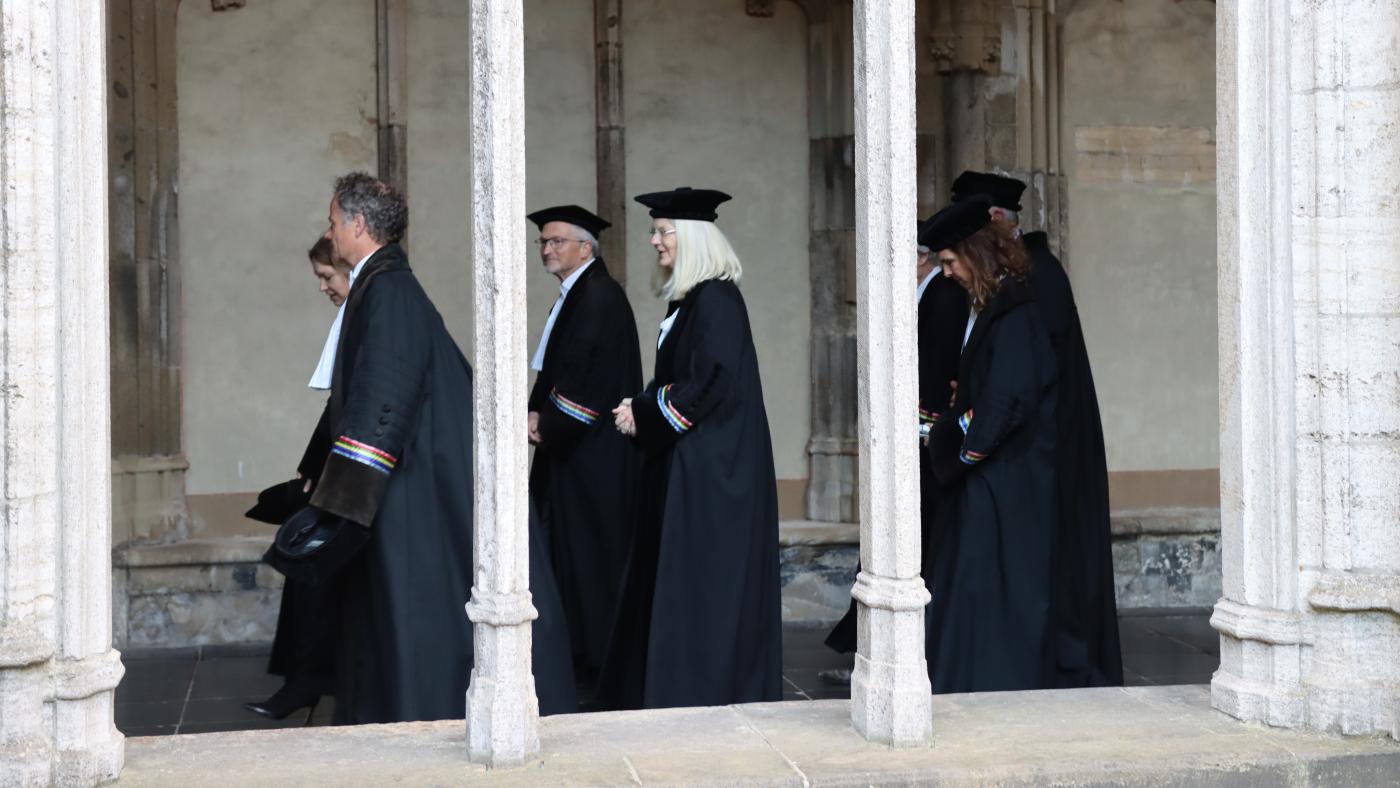Professors take action:
'Give a raise to people who earn less'

Batstra says she could do with a bit less. She is ‘only’ an associate professor and already earns over 8,000 euros per month (gross). Most professors earn even more. Their salary can be as much as over 12,000 euros (gross). Trade unions want to increase wages by another seven percent, but Batstra thinks that such a raise would only be a good idea for the lowest wages, not for the highest. ‘Why should those who earn the most get the biggest raise?’
Cents
Employers and unions are currently negotiating a new collective labour agreement, which should be ready in June. Batstra hopes that the raise will be set as an amount rather than a percentage. If everyone receives the same amount, the salary increase will have a greater impact on lower salaries than on higher ones. ‘Cents instead of percentages’ is the 1970s slogan that Batstra has dusted off – together with two colleagues from the University of Groningen, Laurent Krook and professor Dirk-Jan Scheffers.
She calculates that an average professor will earn about 650 euros more per month with the current union demand. An associate professor will receive ‘only’ 400 extra. In support positions, these amounts are even lower. The Groningen academics propose choosing a fixed amount instead of a percentage starting at scale 12.
Batstra: ‘Life is becoming more expensive for everyone. But it is precisely the less well-off who find it more difficult to protect themselves against inflation. They don't have solar panels and can't insulate their rented home with triple glazing to offset rising energy costs.’
Petition
The unions are familiar with the principle. FNV director Sam Verduijn does not want to say too much about it while the collective labour agreement is still being negotiated, but 'we are always in favour of levelling out and we are open to ideas that contribute to this.’
Batstra and her colleagues have set up a petition which has gathered 437 signatures so far. She is mainly targeting Universities of the Netherlands, the association of Dutch universities, which are negotiating on behalf of employers. ‘UNL didn't want to deal with it before,’ says Batstra.
According to UNL, levelling agreements have been made in previous collective labour agreements. The umbrella organisation points to relatively high salary increases for the lowest scales in the last few collective labour agreements. There have also been one-off payments, which are the same for everyone and therefore relatively advantageous for people in lower scales. However, UNL warns that ‘universities must also be attractive employers for people in the higher scales’.
Cuts
‘Well...’ There is a moment of silence on the other end of the line while Batstra considers UNL's last argument. ’They say that a lot, that you can't get good people if you don't pay enough. I always find that a bit insulting. As if people can only be good if they ask for a lot of money.’
Batstra has long believed that the top salaries are too high, but it is the government's budget cuts that have spurred her to action. ‘We can be outraged about the layoffs. I think that's terrible too. But we can save millions if the highest paid people at the university are willing to accept that they won't earn more, but just as much as the rest. Of all the austerity measures, this is the only one that does no harm.’